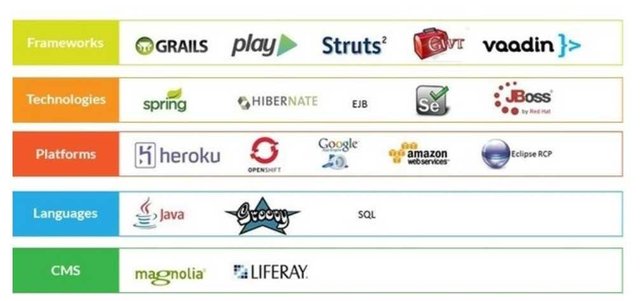What to do after learning core Java
You shouldn't worry too much about the many technologies there are to learn. There are just too many for one person to know.
Pick a few and concentrate on those. Familiarity with Spring, JDBC/ORM, JMS.
web services and technologies like Javascript (JQuery, node.js), HTML5, CSS will give you good general, cross-functional knowledge and adaptability.
Basic knowledge of tools like Git, Subversion, Maven, Gradle, JUnit, and mocking frameworks are also useful because they make you a more productive developer.
One thing that might set you apart from other entry-level candidates is a familiarity with Agile software development techniques.

Knowledge of Test-Driven Development is becoming more and more something that I look for when I do interviews.
I don't really look for knowledge in specific technologies when I interview junior level candidates.
What I look for is a basic understanding of principles: Object-orientation, design, testing. You should have good programming habits.
Read "Clean Code" by Robert Martin to get an idea of what I'm talking about. I also try to see how well they will work with others (you'll do that a lot of that if you're a junior developer) and I like it when they are open to coaching and mentoring.
The candidates who show an eagerness to learn and an ability to pick up on things that I teach them during an interview (I do something that's really more of an audition rather than an interview) are the ones who I am more likely to consider for the job.
Here is the list of Java web frameworks that we’ll be comparing listed alphabetically:
Dropwizard
Grails
GWT
JHipster
JSF
Play framework
Spring Boot
Spring MVC
Struts
Vaadin
Hibernate
